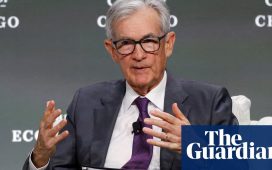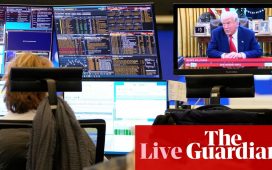
© Reuters. FILE PHOTO: The offices where the London Metal Exchange is headquartered are seen in the City of London, Britain, January 18, 2018 REUTERS/Peter Nicholls/File Photo
By Eric Onstad and Pratima Desai
LONDON (Reuters) – As the London Metal Exchange (LME) savours its court victory over cancelled nickel trades, it still faces a host of challenges including ongoing repair of its damaged nickel contract and reputation after being rocked by crisis last year.
The LME on Wednesday won a legal battle with U.S. financial firms which demanded $472 million in compensation after the exchange cancelled billions of dollars in nickel trades when prices shot to records above $100,000 a metric ton in a few hours of chaotic trade.
Having won the case, the world’s oldest and largest market for industrial metals still has a road to travel as it bids to increase nickel volumes that plummeted after the crisis and is awaiting the outcome of a regulatory investigation.
The 146-year old LME is contending with rivals such as the Shanghai Futures Exchange and the CME Group (NASDAQ:) grabbing market share while also seeking to satisfy regulators and win back some disgruntled customers.
“The much bigger question is rebooting confidence,” said a senior executive at an LME member broker.
LME nickel volumes have been improving, with average daily volumes (ADV) in October up 28% year-on-year, but they are still nearly half the levels in February 2022 before prices shot up.
Overall LME volumes have also slowly recovered, with the ADV for October up 15.5% compared to last year, but down 6% versus February 2022 before the crisis.
The LME, owned by Hong Kong Exchanges and Clearing, has restarted trading during Asian hours and launched a fast-track process for new nickel brands to help improve nickel volumes.
Metal industry sources say the LME has been distracted by the lawsuit and that it was time to focus on the exchange and its workings.
“The LME can go back to doing its day job — running an exchange,” the head of a LME trading desk said. “They need to go back to basics and run the exchange for their members.”
REGULATORY PROBES
This March, Britain’s Financial Conduct Authority (FCA) began investigating LME, its first ever probe of a UK exchange for possible misconduct.
At the time, the FCA said it had launched an “enforcement investigation” into conduct, systems and controls that the LME had in place ahead of the March 2022 crisis.
“We are aware of the judgment and we are considering it, in light of our supervisory remit over the exchange,” a source at the FCA said on Wednesday.
The financial watchdog declined to comment on the investigation.
“What other lessons should be learned from these events will no doubt be at the forefront of the FCA,” said Jonathan Herbst, head of financial services at law firm Norton Rose Fulbright.
The Bank of England, which oversees the LME’s clearing house, appointed an independent monitor in March to assess and report on its remedial actions. It declined to comment on Wednesday.
Many funds that lost money and other participants boycotted LME nickel after the crisis, but now some are returning to the market.
“We’re all in this industry to create profit, and liquidity in nickel has been picking up recently,” said a source at a hedge fund which has been stepping up trading in nickel recently.
“If you sat out of nickel out of principle, over the last two months it might have been very frustrating.”
Nickel has offered potential for large profits in recent months, being the biggest decliner among industrial metals traded on the LME this year, sliding 43% so far, then rebounding sharply over the past two days.









